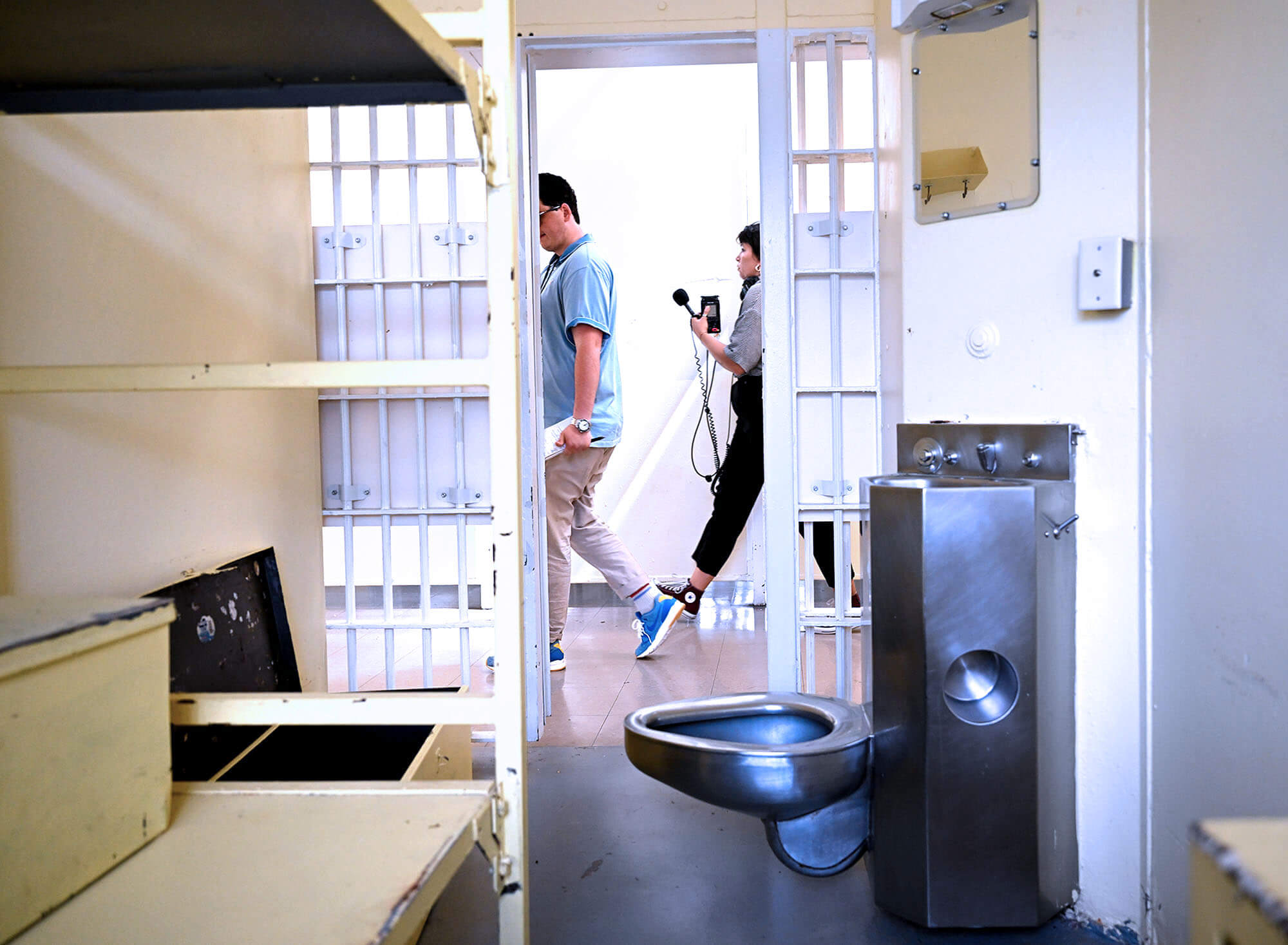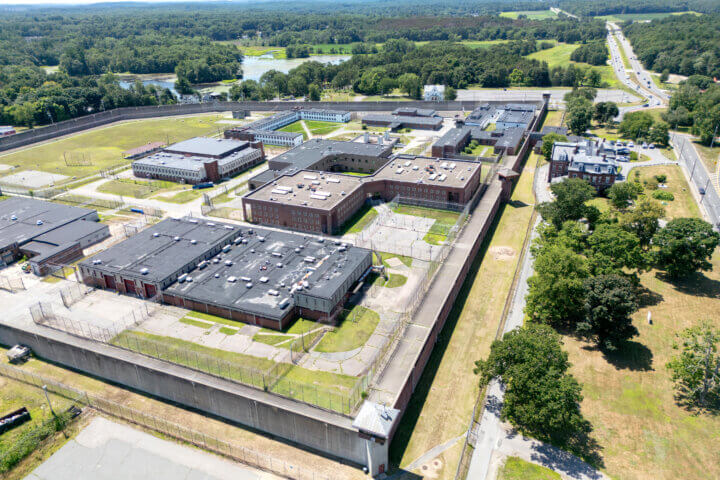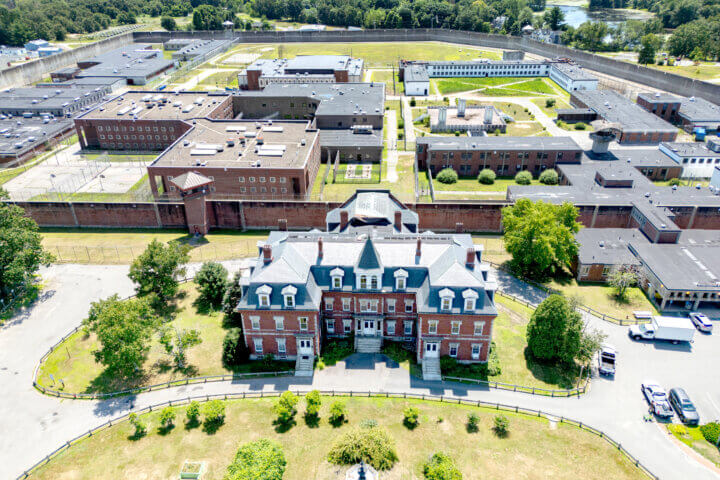By Erin Tiernan — Erin@theconcordbridge.org
From its riotous opening to a foiled mass-escape attempt to a Timothy Leary-led psychedelic experiment in the 60s, decades of history sit inside the wire-topped walls of the MCI-Concord complex.
Outsiders got a rare peek inside on Wednesday as state Department of Correction officials paused to reflect on the legacy of the now-closed prison, which housed inmates including of Malcolm X and notorious Patriarca crime family enforcer Joseph Barboza.
But one of the best-known moments of history forged at the Elm Street prison happened in 1988 when Mother Teresa addressed prisoners and staff members, handing out rosary beads to the masses gathered behind the walls.
Jean Parent, the former director of security who worked at MCI-Concord for 41 years, was there that day.
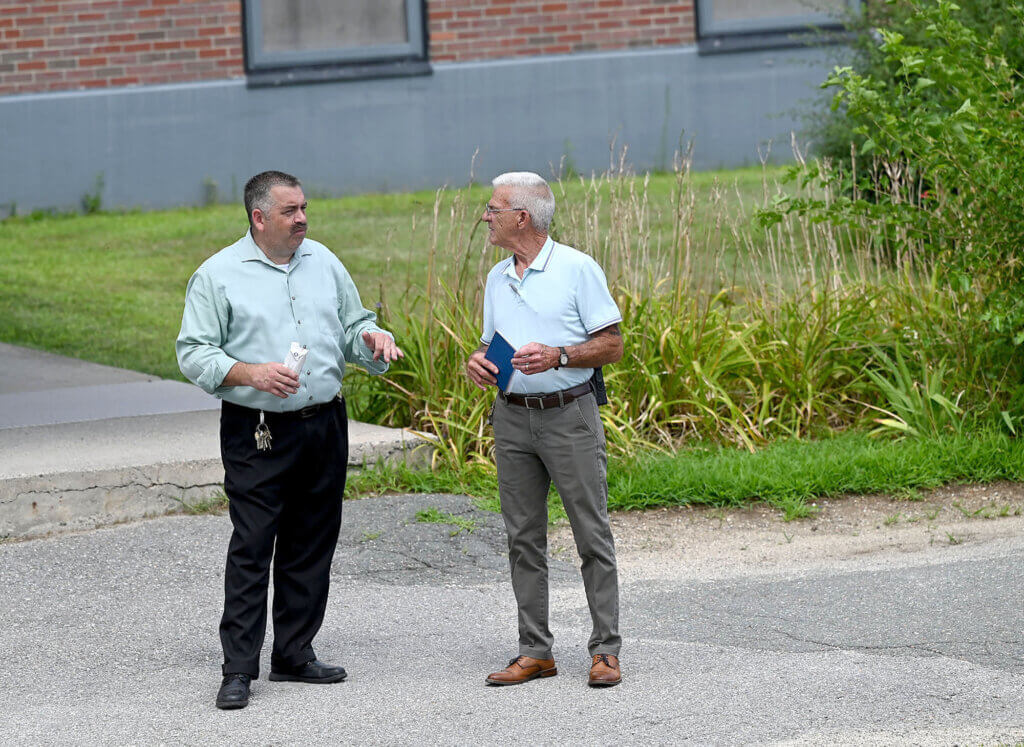
A day to remember
“There were so many people down here that they couldn’t fit everybody in there,” Parent said, walking around the prison’s subterranean chapel.
She ultimately spoke in the prison’s gymnasium — the only place big enough to host the crowd, Parent said.
“Just about every inmate was there, and almost every staff member,” he said. “It was pretty amazing.”
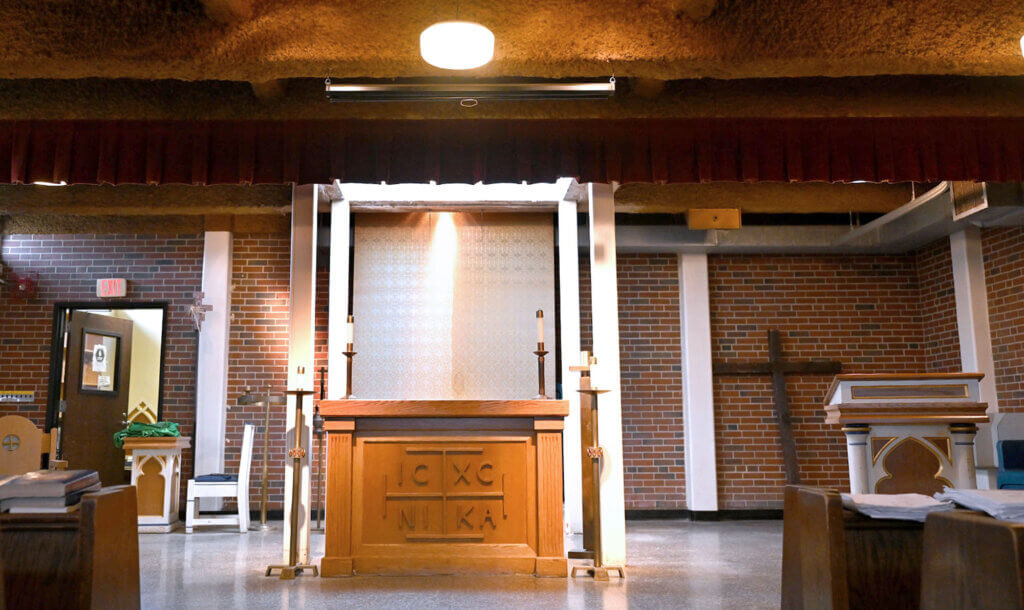
Photo by Ken McGagh for The Concord Bridge
Parent said he will gladly continue to serve the roughly 200 inmates living in Concord at the minimum-security Northeastern Correctional Center across the street.
“A lot of the staff that worked here spent their entire career here, lived in the area, raised their families here, and this place was really who they were professionally,” Interim Department of Correction Commissioner Shawn Jenkins said during a media tour of the prison complex.

Photo by Ken McGagh for The Concord Bridge
History behind bars
With the longest-running Massachusetts prison now empty of inmates, the state is preparing to sell the property for redevelopment. That likely includes demolishing most or all of the structures to make way for housing.
The last inmates left MCI-Concord on June 28, Jenkins told reporters during the media tour.
“This was a difficult decision for the department,” Jenkins said of the closure, noting it was fiscally driven as the department confronted a $190 million cost to maintain and upgrade the aging facility.
Only remnants of the 146-year-old prison’s storied past remain in the now-abandoned cell blocks and the overgrown courtyards. Yellow, pink and red flowers lining garden beds hint at the type of rehabilitative programming for which Jenkins said MCI-Concord became well-known.
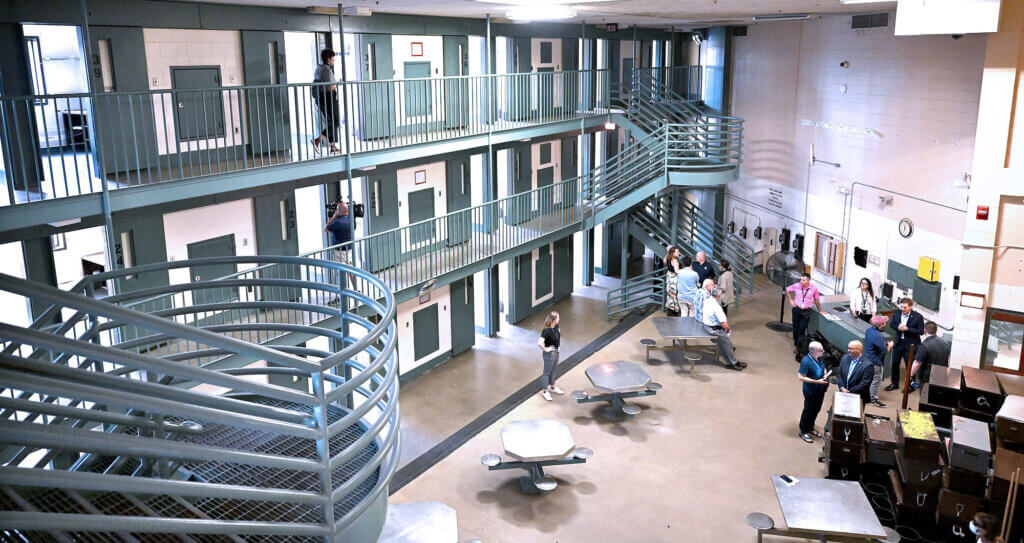
In one cell block known as the BRAVE unit — Building Responsible Adults through Validation and Education — shreds of inmates’ lives were still apparent.
Discarded photo sleeves littered the floors and shelves in emptied cells. A whiteboard still shows the remnants of a prisoner-led mentorship program.
In a trunk that once held the personal belongings of one former inmate lay two discarded books — one a workbook for developing nurturing parenting skills; the other on the power of self-discovery.
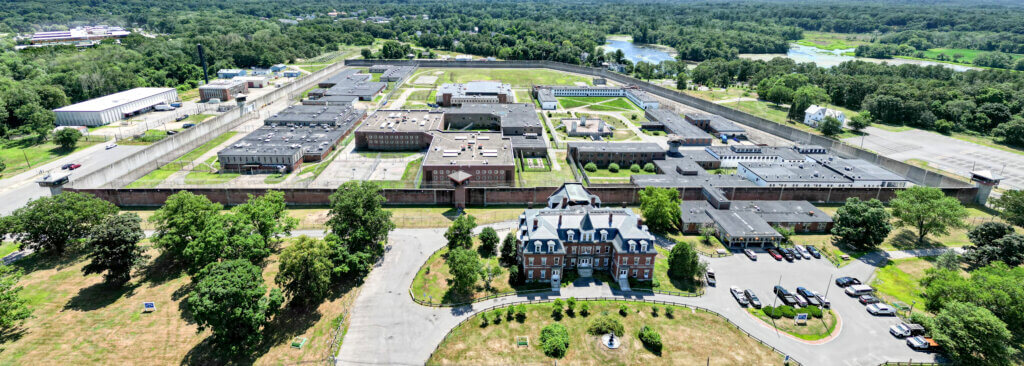
What’s next for the prison property
Gov. Maura Healey announced the prison’s coming closure in January, catching town officials and the state legislative delegation by surprise.
Healey, a Democrat, has highlighted the property for the site of permanent housing — but not for an emergency shelter — amid a statewide shortage that’s exacerbating inflation and driving up the cost of living in a state that’s already among the costliest in the nation.
The Legislature holds the reins for the next steps in the planning process, with the official prison closure tied to the passage of a state operating budget that’s now nearly three weeks overdue.
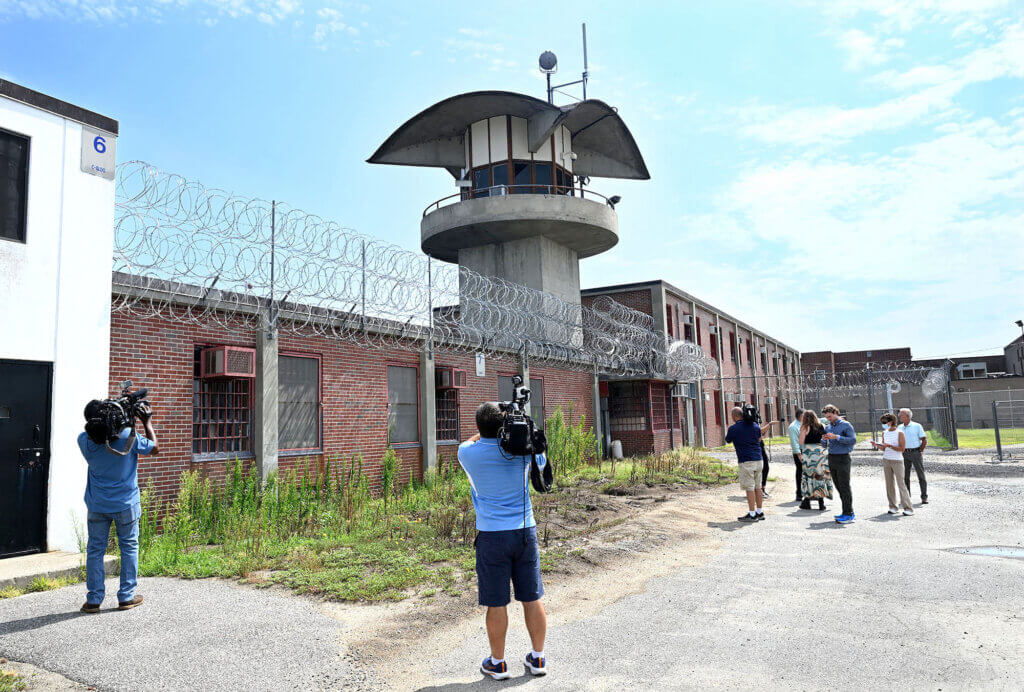
Local officials, with the help of Concord’s delegation, will help shape what the prison property redevelopment will look like and what ultimately gets built there.
Corrections officials said they hope that includes a nod to the site’s past.
“This is a historical site and it would be nice to keep that memorialized in some way,” Jenkins said.
“Whatever the long-term decisions may be for this land or this area going forward, it might be nice to keep some of that historical perspective still intact.”


